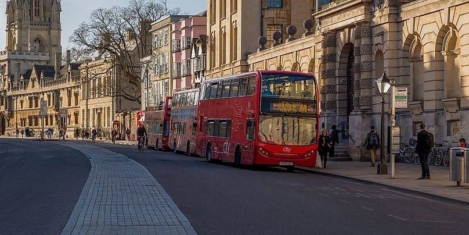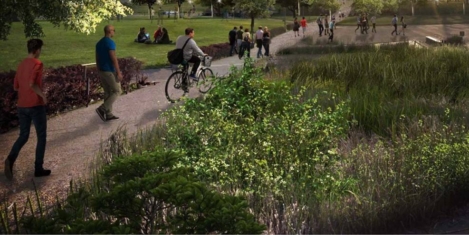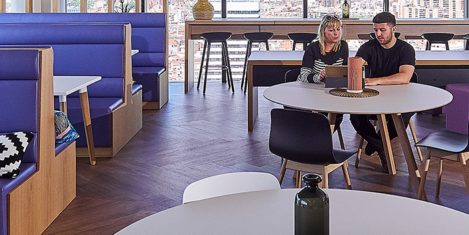November 2, 2018
Skills and new businesses drive decade of recovery for UK cities
 Improving skills levels and new business formation have been the key long-term drivers of growth for UK cities since the financial crisis, according to the latest Demos-PwC Good Growth for Cities 2018 index that ranks cities on a combination of economic performance and quality of life. The latest Index analyses a decade of economic and social data to determine what long-term factors drive Good Growth. PwC analysis shows that the average city in our index has improved its good growth score significantly over 10 years from 2005-7 to 2015-17, and has now more than recovered from the recession and downturn triggered by the global financial crisis.
Improving skills levels and new business formation have been the key long-term drivers of growth for UK cities since the financial crisis, according to the latest Demos-PwC Good Growth for Cities 2018 index that ranks cities on a combination of economic performance and quality of life. The latest Index analyses a decade of economic and social data to determine what long-term factors drive Good Growth. PwC analysis shows that the average city in our index has improved its good growth score significantly over 10 years from 2005-7 to 2015-17, and has now more than recovered from the recession and downturn triggered by the global financial crisis.













 UK workers are feeling more confident about the state of the economy but it’s making them less inclined to stay in their current jobs, a new survey claims. According to the latest Global Talent Monitor report for the second quarter of this year, from Gartner 18.8 percent of UK employees indicated a very low intent to stay in their current role, the second highest after India (40 percent), and higher than the global average of nearly 12 percent. This is the first time since Brexit that workers reported having an optimistic outlook on the job market, and their own career growth. Nearly 40 percent of UK employees reported somewhat high to high confidence in the economy. When it comes to their personal prospects, employee perceptions have risen steadily over the last year and have increased nearly 4 percent. In fact, job opportunity perceptions in the UK are nearly 1.5 points higher than the global average. However, despite their intentions to move on from their current role, UK employees are still putting in a strong effort in their current roles, with nearly 13 percent of employees reporting a high willingness to go above and beyond in their role, and an additional 43.8 percent leaning towards high.
UK workers are feeling more confident about the state of the economy but it’s making them less inclined to stay in their current jobs, a new survey claims. According to the latest Global Talent Monitor report for the second quarter of this year, from Gartner 18.8 percent of UK employees indicated a very low intent to stay in their current role, the second highest after India (40 percent), and higher than the global average of nearly 12 percent. This is the first time since Brexit that workers reported having an optimistic outlook on the job market, and their own career growth. Nearly 40 percent of UK employees reported somewhat high to high confidence in the economy. When it comes to their personal prospects, employee perceptions have risen steadily over the last year and have increased nearly 4 percent. In fact, job opportunity perceptions in the UK are nearly 1.5 points higher than the global average. However, despite their intentions to move on from their current role, UK employees are still putting in a strong effort in their current roles, with nearly 13 percent of employees reporting a high willingness to go above and beyond in their role, and an additional 43.8 percent leaning towards high.






 At the risk of stating the obvious, with the Met Office suggesting temperatures could reach their peak on Friday (27 July) in some areas of the UK, Britain’s largest employer organisation is encouraging companies to consider ‘a range of measures to keep employees comfortable during the heatwave’. Matthew Fell, CBI Chief UK Policy Director, said: “While the current hot spell has provided welcome fillip for consumer-facing sectors, large numbers of employees are feeling the heat as they carry out their day-to-day tasks, especially those working outdoors. Responsible employers take the welfare of their employees very seriously, particularly during this unusual weather. Companies can help keep their employees cool by considering a range of measures, from flexible working to help those with punishing commutes to relaxed dress codes, so staff feel more comfortable in their place of work. Ultimately a common sense approach is needed, as some employees will have less flexibility than others, for example those wearing safety equipment on construction sites. In all cases, staff should have easy access to drinking water as temperatures soar to help keep them healthy and productive.”
At the risk of stating the obvious, with the Met Office suggesting temperatures could reach their peak on Friday (27 July) in some areas of the UK, Britain’s largest employer organisation is encouraging companies to consider ‘a range of measures to keep employees comfortable during the heatwave’. Matthew Fell, CBI Chief UK Policy Director, said: “While the current hot spell has provided welcome fillip for consumer-facing sectors, large numbers of employees are feeling the heat as they carry out their day-to-day tasks, especially those working outdoors. Responsible employers take the welfare of their employees very seriously, particularly during this unusual weather. Companies can help keep their employees cool by considering a range of measures, from flexible working to help those with punishing commutes to relaxed dress codes, so staff feel more comfortable in their place of work. Ultimately a common sense approach is needed, as some employees will have less flexibility than others, for example those wearing safety equipment on construction sites. In all cases, staff should have easy access to drinking water as temperatures soar to help keep them healthy and productive.”


 Demand for commercial office space in central London has remained above the long-term average, with the amount of space under offer increasing, though the level of supply in the West End has continued to decline, according to the latest figures from Savills. Take-up in April reached 275,473 sq ft across 24 transactions, bringing take-up for the first four months of the year to 1.3m sq ft. The volume of transactions to complete over the month was the lowest for April in five years but overall year-to-date take-up still remained up on the long-term average for this period by 13 percent.
Demand for commercial office space in central London has remained above the long-term average, with the amount of space under offer increasing, though the level of supply in the West End has continued to decline, according to the latest figures from Savills. Take-up in April reached 275,473 sq ft across 24 transactions, bringing take-up for the first four months of the year to 1.3m sq ft. The volume of transactions to complete over the month was the lowest for April in five years but overall year-to-date take-up still remained up on the long-term average for this period by 13 percent. 










September 10, 2018
The evolution of the workplace conversation in ten graphs
by Mark Eltringham • Comment, Facilities management, Technology, Workplace design
Based on Google Trends data since 2004 and without comment.
Main image: Herman Miller Living Office